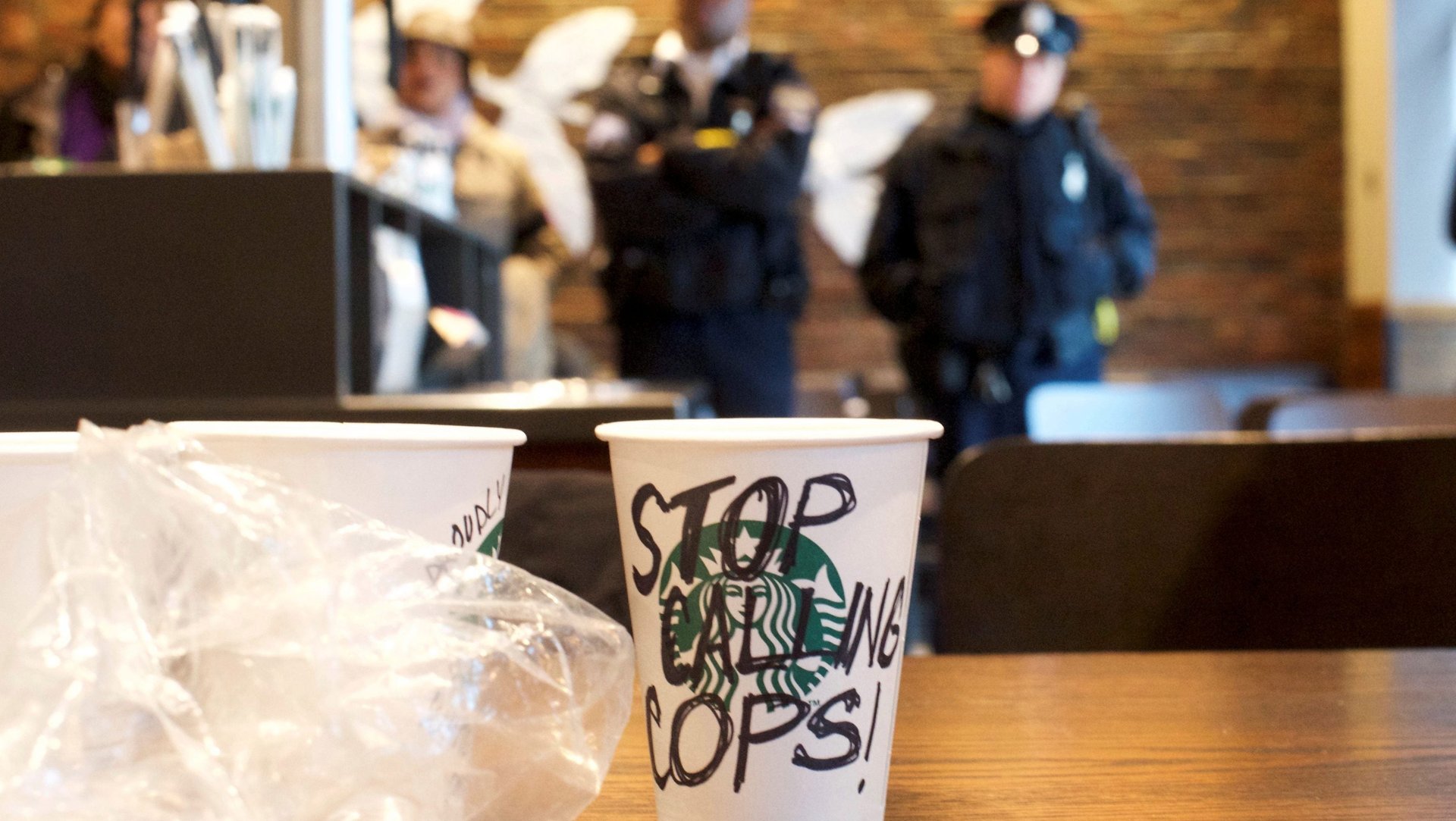The most important thing about Starbucks’ day of bias training isn’t the bias training
Starbucks’ announcement that it will close 8,000 US stores for an afternoon in May to provide its employees with racial-bias training was greeted by a storm of headlines and a flurry of social media commentary.


Starbucks’ announcement that it will close 8,000 US stores for an afternoon in May to provide its employees with racial-bias training was greeted by a storm of headlines and a flurry of social media commentary.
Which was exactly the point.
Many big companies provide employees with diversity training; very few, if any, shut down their entire operations to do it. Starbucks is taking the drastic step to make a dramatic point: In the wake of an incident last weekend in Philadelphia, where a Starbucks manager asked two black men to leave the store and called the police when they didn’t, the company is signaling to its millions of customers, and its nearly 175,000 employees, that it takes racial profiling seriously and is committed to stopping it. Putting its money where its mouth is—the company will forego millions of dollars in sales in the hours the stores are closed to customers—is a very public show of contrition.
Marketing is in Starbucks’ DNA. This is a company that convinced people around the globe that coffee wasn’t just a commodity you can brew at home, but a small luxury worth paying a premium to enjoy in its stores. That experience was sold alongside a message that the company stood for more than profit, that it cared about its employees, and wanted to make the world a better place. That’s why the incident in Philadelphia, which resulted in the arrest of the two men, is so destabilizing: it threatens Starbucks’ story it tells about itself.
The company has made big, splashy gestures before: In 2008, Howard Schultz, Starbucks’ founder and first CEO—dismayed that the company had drifted from its coffee-loving roots—shut down its stores to retrain its baristas on brewing the perfect cup of coffee. And in 2015, it launched, and quickly folded, its ill-considered “Race Together” campaign, designed to spark dialogue about race over coffee in its stores.
Shutting down stores for an afternoon on May 29 might not solve the scourge of racial profiling, but it might help rehabilitate the company in the eyes of disappointed customers.
Importantly, it also will send a signal to employees that the store manager’s actions in Philadelphia won’t be tolerated. Even if the anti-bias training doesn’t change behavior—and there’s evidence to believe it won’t—the fear of being the employee that forced a $22 billion company to shut down just might.